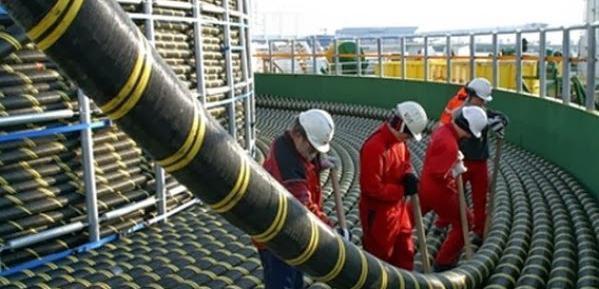The Cretan submarine interconnection project, to link the island’s power system with the mainland grid, possesses all the required aspects to qualify for the European Fund for Strategic Investments (EFSI) – a 315 million euro-package launched last November by European Commission president Jean-Claude Juncker – a leading Greek industrial sector official told an Athens conference, yesterday, focused on economic growth and employment.
The official, Anastasios Kallitsantsis, deputy president at SEV, the Hellenic Association of Industrialists, stressed that Greece urgently needs strategic investments that can offer growth and stop a trend towards deindustrialization and decline in production-related investments.
The SEV deputy chief noted that Crete’s electricity interconnection with the mainland grid, a project whose budget is estimated at 850 million euros, represents a purely growth-related initiative that can be financed by the EFSI fund, adding that it can be amortized in five years.
Once launched, the Cretan interconnection project will ensure stable power supply on the island, improve the mainland grid’s operational ability, and also promote the utilization of Crete’s renewable energy source (RES) potential, Kallitsantsis noted.
“Most importantly, however, the reduction in the cost of energy, by seven to eight percent, will substantially contribute to the creation of new jobs, as energy costs will be reduced for the industrial and tourism sectors,” the SEV deputy chief pointed out.
At present, Crete, like Greece’s other islands, relies on low-efficiency and high-cost petrol-fueled generators for power supply. The Cretan system, comprised of three generators stationed on the island, costs 400 millions euros, annually, to operate. These cost are added to electricity bills as a Public Service Compensation (YKO) surcharge.
Besides the high operational costs, Crete’s electricty needs are pressured during the high-demand summer months, increasing the risk of power outages on the island, as was the case on Santorini not too long ago. Also, petrol-fueled generators obstruct overall RES development on the island.
Kallitsantsis noted that the Cretan interconnection project could be developed by a consortium to include IPTO, Greece’s power grid operator, with a stake of between 35 percent and 49 percent, and private-sector companies with a stake of between 51 percent and 65 percent. He noted the EFSI fund could finance between 15 percent to 20 percent of the project’s cost, while a loan from the European Investment Bank (EIB), or project bonds, could cover between 55 percent and 60 percent of the budget.





